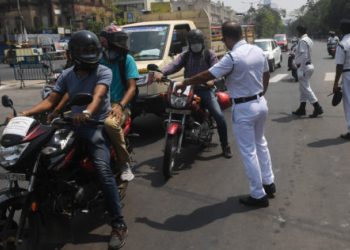Major industries warn of social unrest unless Indian Prime Minister Narendra Modi makes concessions when he announces Tuesday a three-week extension of the pandemic lockout for the country’s 1.3 billion people.
The lockdown ends at midnight Tuesday, but several heads of state have already announced plans to extend it by at least two weeks.
As time has passed, the government has not presented a national plan.
Modi, who is due to make a national address at 04:30 GMT Tuesday, is caught between growing fears about the pandemic – cases have increased in recent days to more than 9,150 with 308 deaths – and the need to revive the economy.
Reserve Bank of India Governor Shaktikanta Das has called the coronavirus an “invisible killer” that could wreak havoc on the economy.
The national restaurant association, which said its members employ seven million people, warned on Monday that there could be “social unrest” if it did not receive financial assistance.
The government plans to keep people at home in Delhi, Mumbai and other major cities, while opening up rural areas of the country that have so far been free of coronavirus.
The media predicted that it would be relaxed for key sectors such as agriculture.
With thousands of trucks carrying food and other essentials stuck at internal borders, the Interior Ministry has already sent new orders to states calling for better movement of essentials.
Farms, still the foundation of the economy, enter their most important harvest period of the year with a massive transport of crops that bring in money to finance many villages for months.
The Ministry of Commerce has also reportedly urged the government to consider opening more activities “with reasonable guarantees” even if the foreclosure were extended.
The government has a long list of sectors that want to start working again.
The auto industry, already hit by the economic slowdown, has lobbied to reopen factories.
The possibility of organizing staggered shifts for different sectors is also considered by the authorities as a means of reducing contact between workers.
Economic growth slowed to around 5% in a few months before the coronavirus crisis.
Now, some analysts say growth could fall to 1.5-2.0% this year – well below the minimum needed to provide jobs for the millions of people entering the Indian job market each month.



















